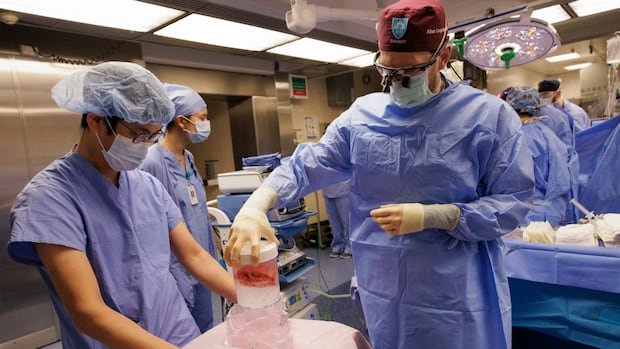In Canada, the waitlist for kidney donations is lengthy, with thousands of individuals enduring years before receiving surgery. However, a man in New Hampshire who underwent a pig kidney transplant is instilling hope in researchers for a potential interim solution.
Mike Curtis, CEO of eGenesis in Cambridge, Mass., expressed optimism following the successful transplant using pig kidneys developed by his company. Kidneys are in high demand for organ transplants in Canada, with 71% of individuals awaiting solid organ transplants requiring kidneys in 2023.
Curtis believes that utilizing animal organs marks a pivotal moment in organ transplantation, offering enhanced medical outcomes for individuals battling kidney disease. This advancement could potentially elevate the quality of life and overall survival rates for patients, potentially eliminating the need for dialysis.
Dialysis, a common treatment for kidney disease in Canada, involves nearly 30,000 individuals and incurs substantial costs annually. The financial burden, coupled with the physical demands of treatment, underscores the urgency for alternatives like pig kidney transplants.
Karen Fisher, hopeful about the transformative impact on her husband, Christian Lemieux, anticipates a positive shift with a pig kidney transplant. Lemieux’s extensive dialysis routine and the challenges it poses to his mental well-being underscore the pressing need for innovative solutions like xenotransplantation.
Dr. Ali Rabi, a cardiac surgeon at Massachusetts General Hospital, emphasizes the significance of medical advancements as the population ages and the demand for organ transplants escalates. While pig-to-human transplants offer promise, ethical concerns and the need for permanent solutions remain key considerations in the transplantation landscape.
In navigating potential risks and benefits, Curtis underscores the importance of genetic screening to mitigate disease transmission from animals to humans. By employing advanced technologies like metagenomics, researchers can safeguard against unforeseen health threats, emphasizing the critical balance between risk and reward in experimental therapies.
While advancements in pig kidney transplants offer hope for patients like Lemieux, ongoing research and careful monitoring are essential to ensure the safety and efficacy of these innovative procedures. Fisher remains cautiously optimistic about the potential life-changing impact of pig kidney transplants, highlighting the need for continued vigilance and support in this evolving medical landscape.

